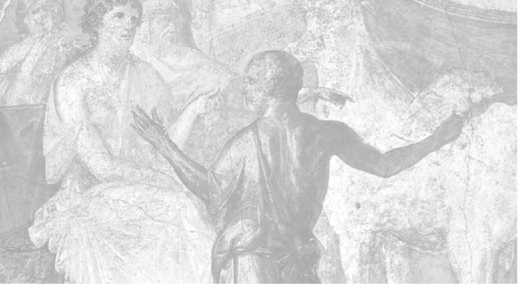Cycladic, Minoan, Mycenaean, and Archaic Greek MythologyThe Cyclades and Crete |
Who were the Cycladic and Minoan peoples and what was their history? |
The southern Aegean islands known as the Cyclades—perhaps after some nymphs the sea god Poseidon was said to have turned into stones—were inhabited from at least 7500 B.C.E. and its inhabitants almost certainly had contact with Egyptian civilization during the Bronze Age. By 3200 B.C.E. the Cycladic civilization had developed a sophisticated artistic tradition and presumably a mythological one. Its palace-based culture resembled that of the Minoans, with whom they had significant interrelations. The Minoans were a Bronze Age people living on the island of Crete in the Eastern Mediterranean. Their immediate ancestors were Neolithic farmers and fishermen living on the island from at least as early as 6000 B.C.E. The Bronze Age Minoan civilization existed from about 2700 B.C.E. The Minoans were not Indo-Europeans and were not related to the Greeks or to the pre-Greek peoples of Greece and Anatolia, but were active traders with the Mesopotamians, Egyptians, and the inhabitants of the Greek mainland, the islands of the Aegean, and Anatolia. They were known for their architecture, pottery, and other arts and crafts. We do not know what they called themselves. The British archeologist Sir Arthur Evans (1851–1941), who unearthed the great palace at Knossos, called them “Minoans” after the king known in Greek mythology as Minos.
The first Minoan palaces, built between 1900 and 1700 B.C.E., were destroyed in about 1700 B.C.E., either by an invasion or, more likely, an earthquake. They were quickly rebuilt in grander style; palaces such as the famous one at Knossos represented the pinnacle of the Minoan civilization. We have come to think of this palace as the home of King Minos. In Greek mythology Minos’ palace is associated, in turn, with the stories of the Minotaur, Theseus, and the Labyrinth. In about 1425 B.C.E. Crete was taken over by the Mycenaean Greeks—the people of whom Homer writes in his Iliad and Odyssey epics about the Trojan War and the return of the hero Odysseus.

